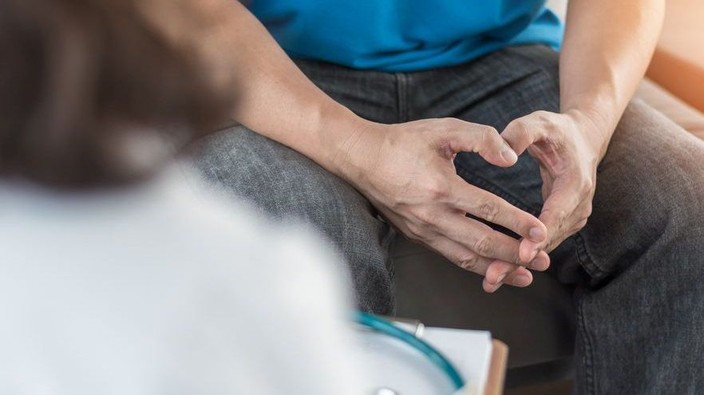calgary continues to see consistent demand for mental health support
suicide-related calls remain considerably higher than in previous years, according to the centre

in-patient consulatations have given way to online visits during the pandemic. images/istockphoto
noipornpan
/
getty images/istockphoto
by: olivia condonas public health restrictions related to the covid-19 pandemic ease, distress centre calgary continues to see a steady need for mental-health supports across the city.though their most recent data is only available up to may, the centre’s executive director mike velthuis kroeze expects the higher need will persist for some time after the pandemic crisis has abated.“the issues, especially around mental health, have been remarkably consistent throughout the pandemic,” he said. “even looking all the way back as far as january, our top issues have stayed the same; anxiety is the no. 1 issue that we see, and then a depressed mood and suicidal ideation alternate between two and three.”velthuis kroeze said loneliness and isolation crack the top five issues, but he expects that to lessen as the effects of the pandemic continue to ease.suicide-related calls remain considerably higher than in previous years, which is a concern but also a positive sign because it means people are reaching out for help.“when we look at year-to-date, up until the end of may, we see about a 36 per cent increase (in suicide contacts) over the same time period last year. and that’s been pretty consistent, especially since about october when we really started to notice that the suicide-related contacts were climbing,” he said.looking forward, velthuis kroeze said policy-makers need to consider that the mental-health crisis created, or at least worsened, by covid-19 will continue to be an issue that needs attention.“the biggest barriers and the biggest challenges that we’re going to see over the next few months is the amount of people that delayed getting help for their mental-health concerns because they either couldn’t see someone in-person, they didn’t have transportation to go to the correct place, or didn’t have access to the internet,” he said.ultimately, he added there is “realistic hope” that things will improve.“while the restrictions might be lifted, that doesn’t necessarily mean that it’s going to translate into what it was like before the pandemic,” he said. “undoubtedly, there’s hope . . . i think that stigma is going down and people are still willing to reach out for help, which is a really positive sign.”ocondon@postmedia.comtwitter:@oliviacondon
 2 minute read
2 minute read





